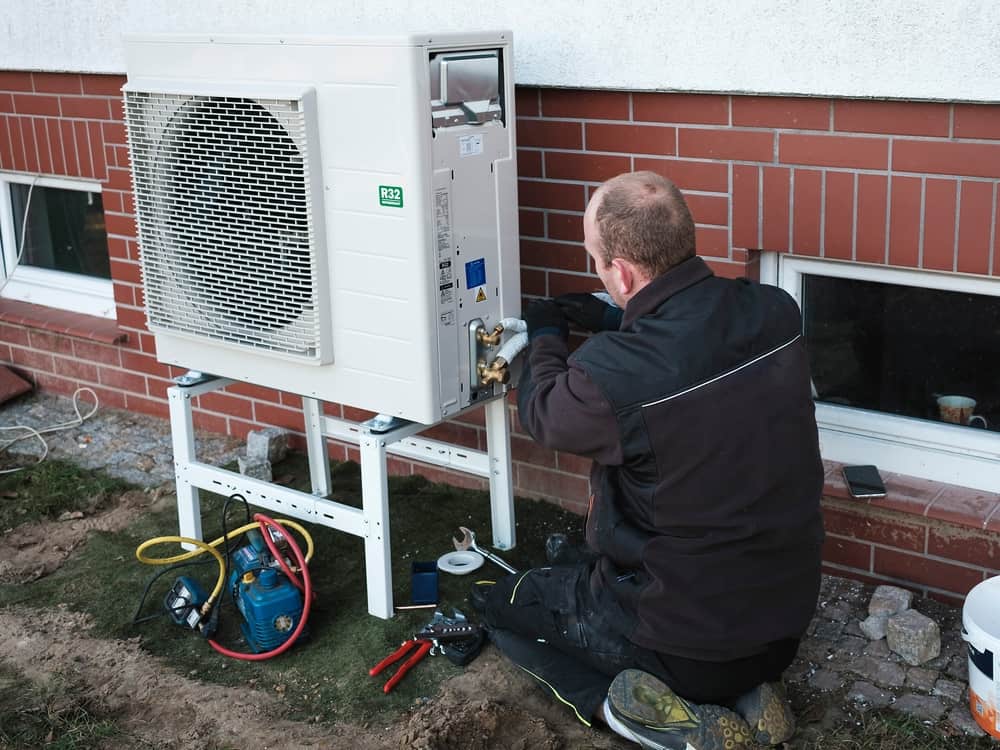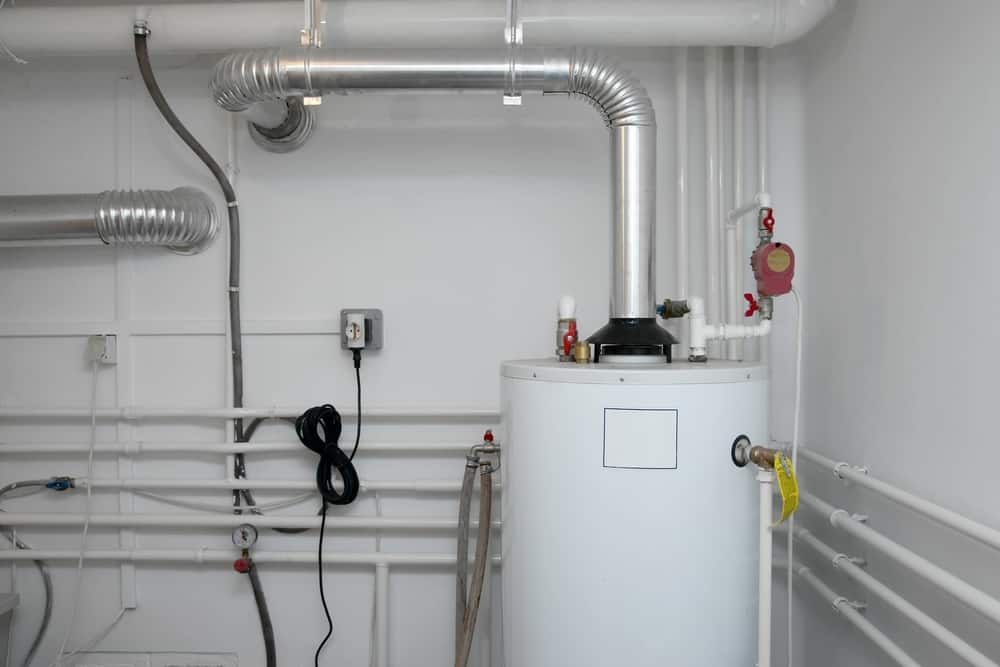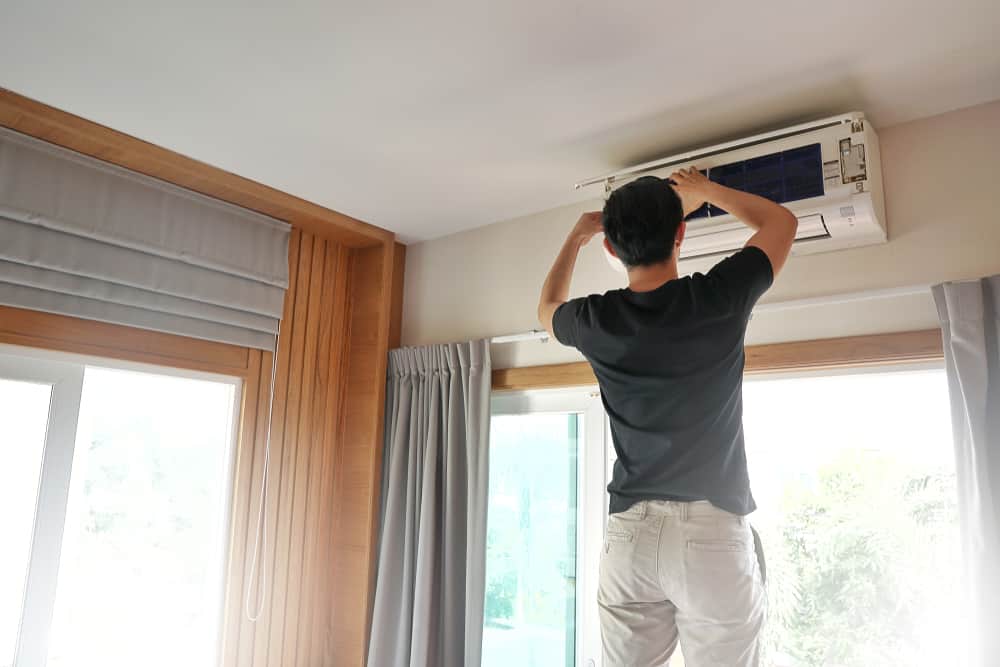
Every residential heating, ventilation, and air-conditioning (HVAC) unit requires repairs every once in a while. But if those repairs become more frequent, it may be time to replace your system.
So, when should you consider replacing your HVAC system instead of repairing it? Below, we’ll discuss some of the major indications for repairing or replacing your HVAC unit, and why an experienced heating and cooling professional can best determine whether you need a repair, an upgrade, or a full replacement.
When You Should Repair HVAC
Even with regular maintenance of your AC system, you will face issues—a few of them you can troubleshoot on your own, while leaving the more complex problems for HVAC professionals. Some of the telltale signs that indicate your home AC unit needs repair include:
Clogged Filter
A dirty or clogged air filter severely decreases the efficiency of an HVAC system. If you are experiencing reduced air flow with hot and cold spots in your home, or have higher utility bills than normal, the culprit might be a clogged AC filter.
A filter that’s clogged with dust and debris makes the blower fan strain harder to move the air. This results in reduced airflow and leads to uneven heating and cooling of your house. As the AC unit works harder to reach the desired indoor temperature, it uses more energy, which creates higher utility bills. A clogged air filter requires an inspection by a qualified technician—delays could cause an entire unit to shut off.
Leakage
Ice buildup on evaporator coils or puddles of liquid near the AC unit is a common sign that your AC has a refrigerant leak. The cracked coil inside an air conditioner can cause a slow and steady leak. Ignoring a refrigerant leak will eventually damage the unit. **Homeowners can NOT troubleshoot this issue and need an HVAC professional to resolve it.** Depending upon the severity of the damage to the coil, an HVAC technician can patch the cracked coil or recommend a coil replacement.
Noisy HVAC Unit
An HVAC unit that makes rattling or clanking noises means that some parts inside may have been knocked loose or broken. Noises such as whistling, buzzing, rumbling, or dripping should signal an immediate call to your HVAC technician as there may be underlying issues like internal pressure build-up, refrigerant leaks, a malfunctioning compressor, or a problem with the heat exchanger.
Electrical Issues
Frayed, corroded, or disconnected wires inside an HVAC system disrupt the flow of electricity. This energy interruption causes the other parts of the system to work harder and overheat, resulting in mechanical failures like a compressor breakdown. Electrical issues relate to the ignition system and need to be resolved with the help of a technician.
Worn-Out Parts
Some HVAC parts that wear out most commonly include air filters, AC capacitors, and blower fans. Air filters and blower fans should be inspected regularly and replaced before they lead to costly repairs.
If the performance or efficiency of your home AC unit does not improve—even with frequent repairs and maintenance—it’s time to consider replacing the unit altogether.
When Should You Replace An HVAC Unit?
Replacing your HVAC unit is an obvious solution under the following conditions:
Age of the HVAC Unit
The typical lifespan of an air conditioner is 10 to 15 years. The older your HVAC system gets, the more frequent repairs it will need. The system’s energy efficiency also decreases with age. New residential HVAC units are 15% more efficient than standard models, resulting in greater energy savings. As your unit ages, its SEER rating declines 1 point every 4-5 years.
Use Our Calculator to Determine Your Energy Savings with a NEW AC System
Availability of Refrigerant
Many AC units over 10 years old still use R-22 Freon as a refrigerant. Due to its harmful environmental effects, the Environmental Protection Agency has now banned the production or import of R-22 in the U.S. If your AC unit uses R-22 and runs out of refrigerant, your HVAC technician can service the unit with an existing, recycled, or recovered R-22 supply as long as the stock lasts. This means you should plan now to replace your old AC unit with a new one running on environmentally friendly refrigerants like R-410 A (Puron).
Higher Energy Bills
If your utility bills are continuously creeping up even after regular HVAC maintenance, switching to a new ENERGYSTAR-qualified system can significantly improve your savings. Replacing a SEER 9 air conditioning unit with a SEER 14 one can reduce your energy consumption by more than 35%. In addition to saving on your energy bills, upgrading your AC to a more efficient model may qualify you for federal rebates under the Inflation Reduction Act of 2022.
Maintenance and Repair Cost
The 50% rule is used widely across the HVAC industry to determine the return on investment (ROI) and lifetime cost analysis of replacing an air conditioning unit. If repair costs are more than 50% of the value of the HVAC system, then replacing the unit is a better option. Another simple formula is to multiply the unit’s age by the cost of repairs. If the total exceeds $5,000, it’s time to replace your air conditioning unit.
The best way to determine whether you need to repair or replace an HVAC unit is by consulting with a trusted heating and cooling professional in your area.
An Experienced HVAC Professional Can Help You Decide
Baker Home Energy’s team of certified and reputable air conditioning specialists provide cost-efficient heating and cooling solutions for your home. Whether it is performing routine HVAC maintenance, repairing your existing air conditioning unit, or replacing it with a new one, we offer unparalleled customer service in the San Diego area and throughout SoCal. With a seasonal air conditioning tune-up and safety inspection, our qualified engineers can help you make the right decision on repairing or replacing HVAC.




